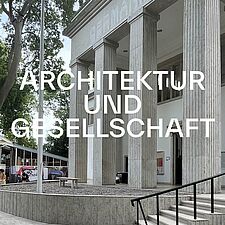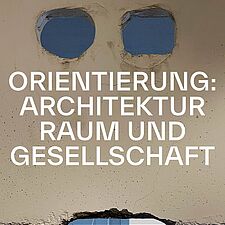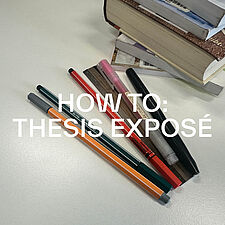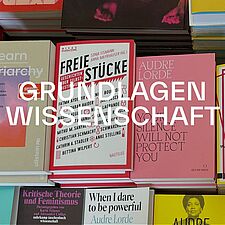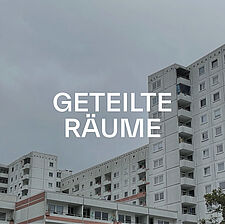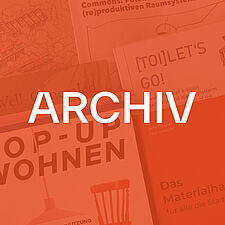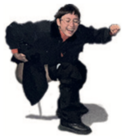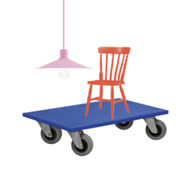The department architecture, space and society deals with the complex networks and social relations of architecture as well as the methods of making visible its production and transformation processes in everyday life. In doing so, it is always a matter of challenging a rigid object-oriented thinking in architecture and making anonymous groups, such as the users of buildings, visible as individual space-creating actors.
Team
Lara Stöhlmacher | Wissenschaftliche Mitarbeiterin
E-Mail: lara.stoehlmacher(at)hcu-hamburg.de
Marieke Behne | Lehrbeauftragte
E-Mail: marieke.behne(at)hcu-hamburg.de
Firdes Firat | Lehrbeauftragte
E-Mail: firdes.firat(at)hcu-hamburg.de
Janna Lipsky | Lehrbeauftragte
E-Mail: janna.lipsky(at)hcu-hamburg.de
Lisa Marie Zander | Lehrbeauftragte
E-Mail: lisa.zander(at)hcu-hamburg.de
Leona Erdmann | Tutorin
E-Mail: leona.erdmann(at)hcu-hamburg.de
Juli Sottorf | Tutorin
E-Mail: juli.sottorf(at)hcu-hamburg.de
Emma Stiehle | Tutorin
E-Mail: emma.stiehle(at)hcu-hamburg.de
Noel Pinna | Tutor
E-Mail: noel.pinna(at)hcu-hamburg.de
Aktuelles
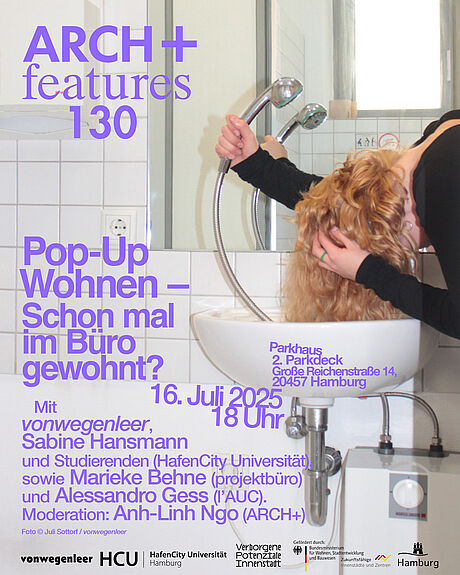
Pop-Up Wohnen – Schon mal im Büro gewohnt?
Projektvorstellung und Besichtigung mit vonwegenleer, Sabine Hansmann und Studierenden (HafenCity Universität Hamburg) sowie Marieke Behne (projektbüro) und Alessandro Gess (l'AUC); Moderation: Anh-Linh Ngo (ARCH+) , 16. Juli 2025, 18 Uhr Parkhaus – 2. Parkdeck, Große Reichenstraße 14, 20457 Hamburg
Das Kollektiv vonwegenleer und Studierende der HafenCity Universität Hamburg erproben in Kooperation mit dem Fachbereich Architektur, Raum und Gesellschaft, Prof. Sabine Hansmann, eine Wohnzwischennutzung in einem leerstehenden Bürogebäude in Hamburgs Innenstadt. Anders als bei der dauerhaften Umnutzung setzt vonwegenleer auf flexible, temporäre Szenarien als praktischen, aber dennoch radikalen Beitrag zur Wohnungsfrage.
Im universitären Reallabor erforscht das Team, wie gemeinschaftliches Wohnen auf Zeit gestaltet werden kann – räumlich, materiell, sozial und politisch. Welche Herausforderungen entstehen beim Leben im Büroleerstand? Welche Potenziale bietet die temporäre Umnutzung?
Im Anschluss Führung durch die temporären Wohnflächen, direkt gegenüber dem Parkhaus.
Die Veranstaltung ist kostenlos, Anmeldung erbeten unter: features(at)archplus.net
Das Pilotprojekt Pop-Up Wohnen wird gefördert durch das Programm „Zukunftsfähige Innenstädte und Zentren“ des Bundesministeriums für Wohnen, Stadtentwicklung und Bauwesen.
Forschung
ARTILACS - Artistic Intelligence in Latent Creative Spaces

Das Graduiertenkolleg ARTILACS – Artistic Intelligence in Latent Creative Spaces rückt das Konzept einer »Künstlerischen Intelligenz« in den Fokus. Damit wird eine kritisch-affirmative Auseinandersetzung mit den Entwicklungen der Künstlichen Intelligenz (KI) im Kontext künstlerischer Praxis adressiert. ARTILACS untersucht, inwiefern eine hybride Kombination aus KI-gestützten, latenten Räumen und traditionellen Wissensräumen der künstlerischen Praxis Chancen für neue Formen von Kreativität und Erkenntnis eröffnet, die sich im Konzept einer „Künstlerischen Intelligenz“ methodisch fassen lassen. Es kooperieren vier Hamburger Hochschulen (HafenCity Universität, Hochschule für Angewandte Wissenschaften, Hochschule für Bildende Künste und Hochschule für Musik und Theater) sowie die Universität und Musikhochschule Lübeck, um das Thema im Kontext unterschiedlicher künstlerischer Praktiken zu beleuchten. Das im Rahmen des Kollegs an der HCU angesiedelte Promotionsvorhaben widmet sich den KI-gestützten Entwurfsprozessen in der gestalterischen Praxis von Architekten:innen.
Projektstart: 2025
Research
HOOU project "Material Networks"
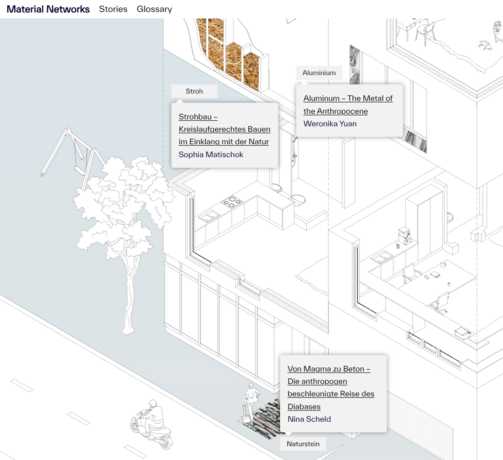
Over the past 60 years in particular, there has been a fundamental change in the relationship between humans and nature. Architecture has played a key role in this. In Germany, the construction and operation of buildings causes around 40% of CO₂ emissions, 52% of all waste and consumes 90% of mineral, non-renewable raw materials in the production of building materials. The immense energy consumption and high CO₂ emissions of buildings, construction site residues and non-recyclable demolition waste, as well as increasing social inequalities and social divisions, require a fundamental mindset change in the construction industry and architecture. As architects, we shape nature with our everyday design decisions. All building practices have an impact locally in the immediate neighborhood as well as globally in the earth system. While the general public has recently become aware of the complicated relationships in many areas of everyday life, for example with the clothing industry in Bangladesh, the interconnectedness of the construction industry, for example in the course of lime or sand extraction, is less recognized. However, in light of the climate emergency, such awareness is urgently needed in order to be able to take responsibility for spatial planning activities.
Material Networks is an interdisciplinary teaching project and online archive that tells stories, researched and written by students, about the everyday connections of materials in the construction process. Funded by the Hamburg Open Online University, the open educational resource provides important knowledge to support a change of mindset in times of resource scarcity and climate emergency. Due to the range of the material stories, which provide insights into the global resource budget and always relate to the lives of other people and species, there are also a variety of possible reference points for various disciplines and areas of interest.
https://hoou.de/materialnetworks/
Project start: January 2022
WAS Network
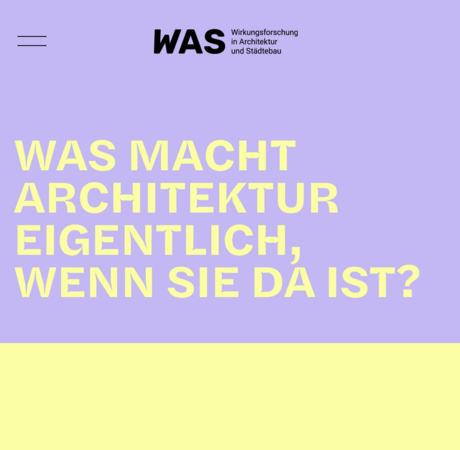
The scientific network Impact Research in Architecture and Urban Planning: Interdisciplinary Theories and Methods (German title: Wirkungsforschung in Architektur und Städtebau: Interdisziplinäre Theorien und Methoden (WAS)), funded by the German Research Foundation (DFG), has been launched. Over the next three years, the members will devote themselves to working on definitions for specifying the fields of impact of architectural and urban planning as well as the research methods and theories that are to be made productive for this purpose. More about our work can be found here (in German).
HafenCity University Hamburg
Studio 3.111.2
Tel.: +49 (0)40 42827-5366
sabine.hansmann(at)hcu-hamburg.de
Consultation hours during the lecture period:
Wednesday 11-12 a.m.
(after registration via email)
Externe Links
Thesen – Ausblicke
>>>

